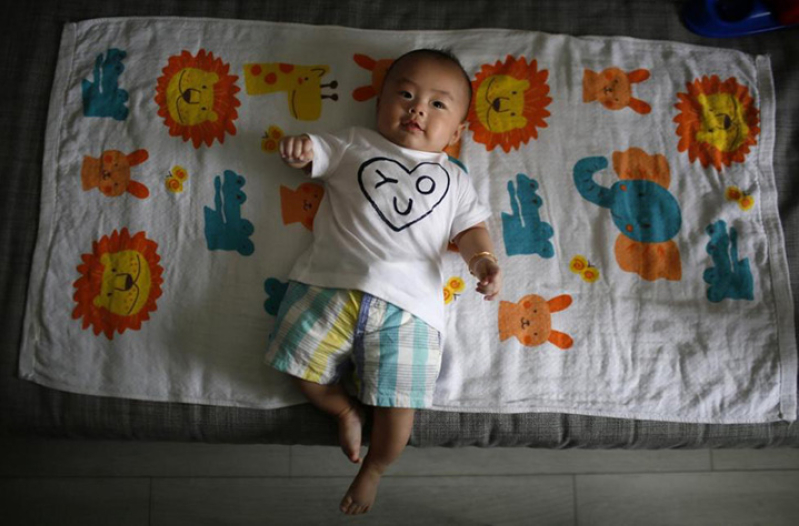
In response to demographic challenges, China eased restrictions on its one-child policy last year, but fewer couples than expected have asked the government's permission to bear a second child.
The announcement, made by China's National Health and Family Planning Commission on Monday, indicated that over 1 million couples applied to have a second child. According to Patti Waldmeir of the Financial Times, the law had previously granted that concession to urban couples where both parents were the only children in their families.
"This proves the policy relaxation will not spur rapid population growth and the demographic problem in China is continuing to worsen," one-child policy expert He Yafu said. "We will see more proposals ... this year to urge the government to banish the family planning policy."
Yafu added that "the actual number of newborn second babies is even lower," estimating the actual total around "600,000 to 700,000."
"It is just one-third of the family planning commission's estimate," Yafu said.
However, Laura Zahou of South China Morning Post reported that the total was in line with official expectations. Mao Qunan, spokesman for the National Health and Family Planning Commission, indicated that the change would allow the numbers to peak at 2 million births this year.
"The health authority had also been studying the current situation to help improve future healthcare for pregnant women and their babies when China's population started to boom," Qunan said.
According to South China Morning Post, the one-child policy rules were changed back in November 2013 after being approved by the Standing Committee of the National People's Congress. Local governments across China have implemented the decision to relax regulations since March 2014.
"Couples can now apply for permission to have a second child if one of the parents is an only child," Zahou wrote.
However, Sui-Lee Wee of Reuters reported that scholars have expressed concerns that China could face a demographic crisis as birth rates decline. It also placed China on a path of being "the first country in the world to get old before it gets rich."
"While China is the world's most populous nation with 1.34 billion people, many analysts say the one-child policy has shrunk China's labor pool, hurting economic growth," Wee wrote. "For the first time in decades, the working age population fell in 2012."
The Financial Times reported that about 11 million families would become eligible to bear a second based on the new rules, according to the Chinese government. Demographers have found though that theory and reality do not always match up when it comes to a relaxed one-child policy.
"Opinion polls often show a willingness in principle among Chinese parents to bear a second child, but this is often not matched by actual births," Waldmeir wrote. "The revised policy affects many parents in large urban centers, where the cost of bearing an extra child, in terms of both time and money, has become prohibitive."
Reuters noted that the costs of not following family planning laws in China can vary. At minimum, couples flouting the law can be fined, but others have faced harsher penalties, including the loss of their jobs or being subjected to forced abortions or sterilization.







